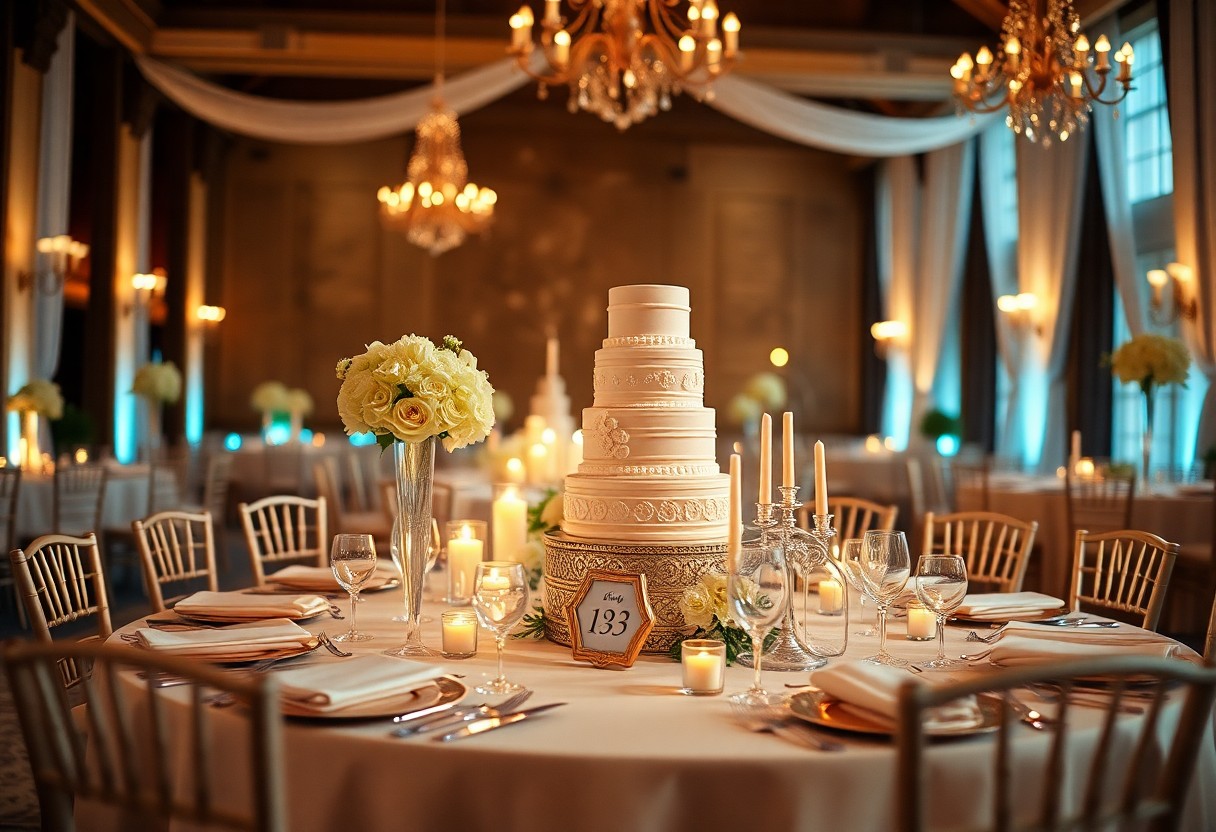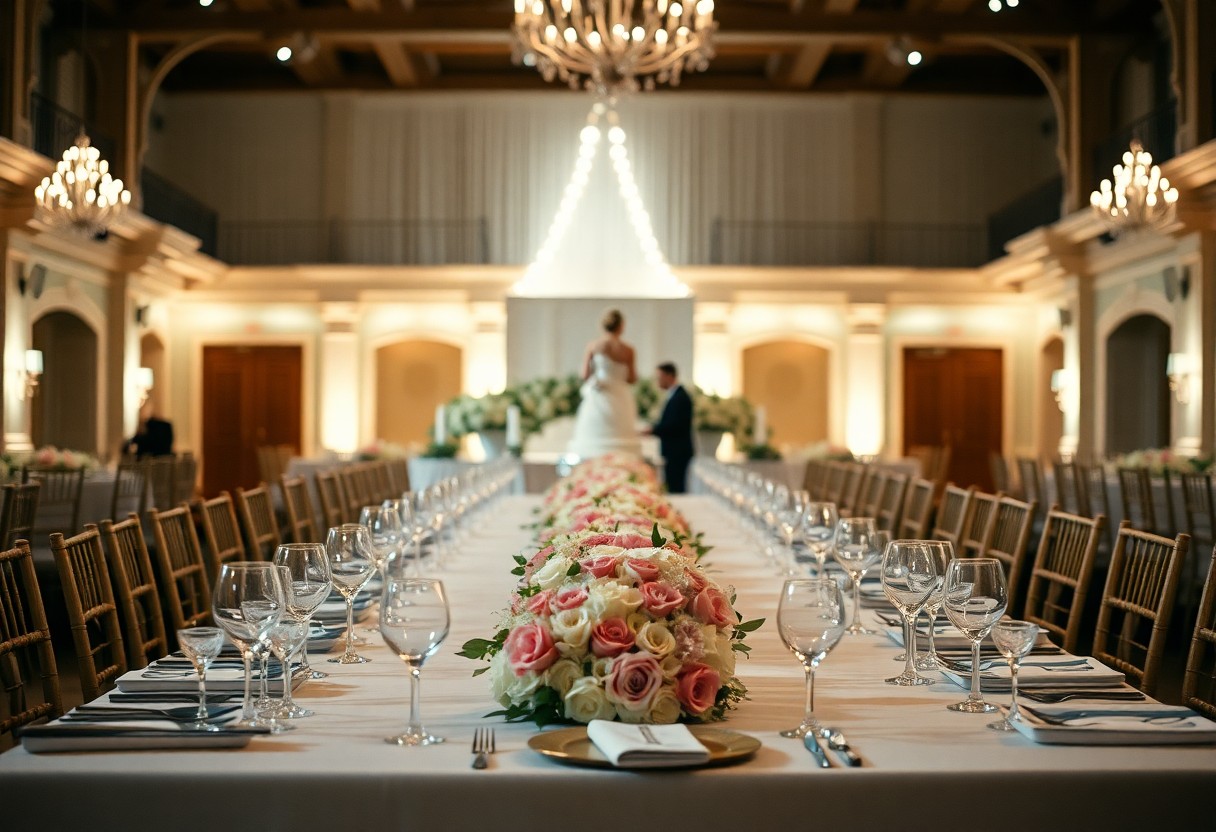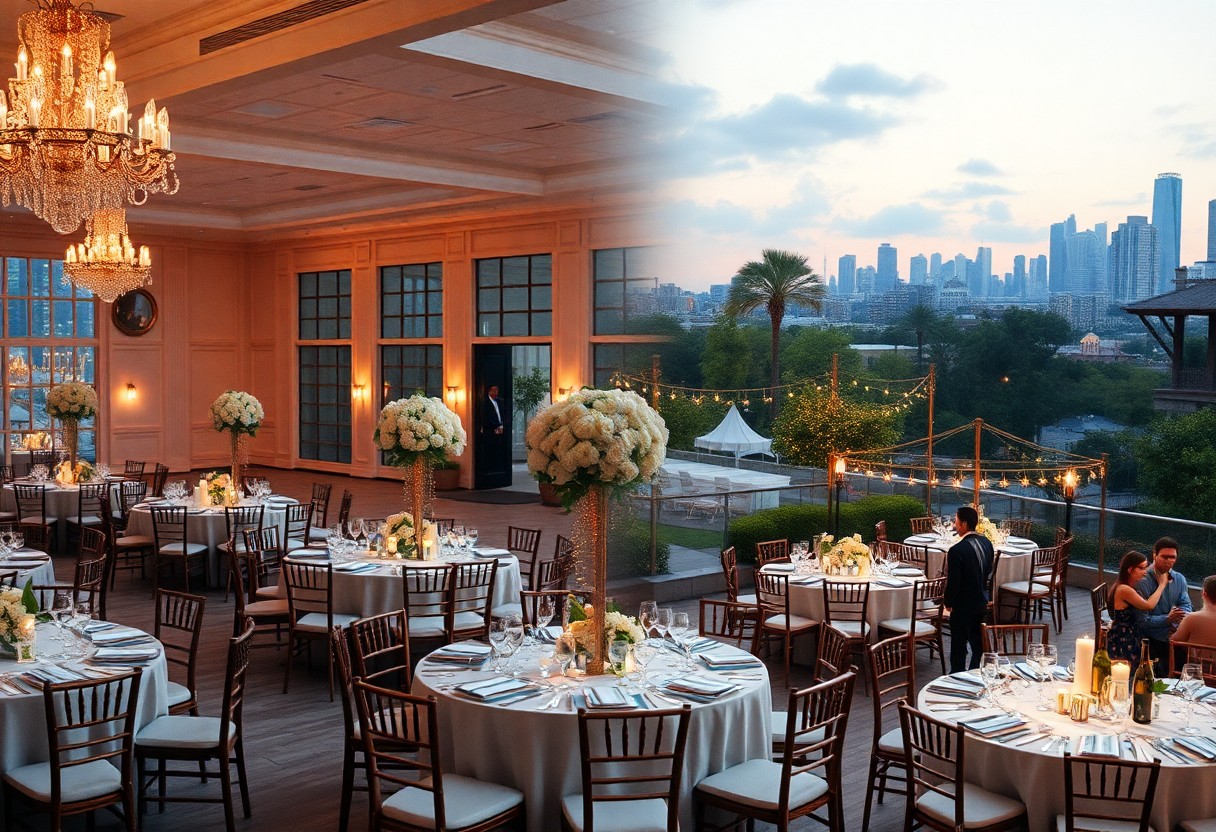Over the course of your wedding planning, selecting the perfect venue for your reception is an crucial step that sets the tone for your celebration. With countless options available, it can feel overwhelming to narrow them down to a single choice. You need to consider factors such as location, capacity, style, and budget to ensure the space aligns with your vision. This guide will walk you through the key elements to evaluate as you commence on the exciting journey of finding a venue that reflects your unique love story.
Key Takeaways:
- Consider the size of the venue in relation to your guest list to ensure everyone can comfortably fit and enjoy the celebration.
- Evaluate the location for accessibility and convenience, keeping in mind factors like parking, accommodations, and transportation options for guests.
- Match the venue’s style and atmosphere with your wedding theme to create a cohesive and visually appealing experience for you and your guests.
Understanding Your Wedding Style
A key element in selecting the right wedding reception venue is understanding your personal wedding style. This encompasses all the visual and thematic elements that define your vision, from color palettes to aesthetics. Are you drawn to classic elegance and timeless charm, or do you prefer a relaxed and playful celebration? By clarifying your style, you can narrow down venue choices that will complement and enhance your unique vision for the day.
Formal vs. Casual Venues
Across the spectrum of wedding receptions, venues can range from formal ballrooms to casual barn settings. Your choice between a formal or casual venue should reflect not only your personality but also the overall atmosphere you aim to create. A formal venue may suggest sophistication and elegance, while a casual space allows for a more laid-back and intimate gathering. Consider how each type of venue aligns with your wedding style when making your decision.
Indoor vs. Outdoor Locations
Above all, the choice between indoor and outdoor locations can significantly impact the ambiance of your reception. Indoor venues offer climate control and shelter from unexpected weather, while outdoor settings may provide breathtaking natural backdrops. Your venue should not only accommodate your guest list but also align with the overall theme and time of year, ensuring your special day is as memorable as possible.
Wedding receptions can be beautifully styled regardless of whether you choose an indoor or outdoor location. Indoor venues such as banquet halls or elegant hotels often come with flexibility for decor and lighting, allowing you to create the atmosphere you envision. On the other hand, outdoor venues like gardens or beaches immerse your guests in nature, offering stunning visuals and a relaxed feel. When deciding, consider logistics, potential weather conditions, and the experience you want to create for your guests as you make your choice.
Setting a Budget
You need to establish a budget before exploring into the venue selection process. Your budget will help guide your decisions and ensure you stay on track financially. Consider the overall cost of your wedding and how much you can realistically allocate for the reception venue. Being clear about your budget will allow you to narrow down your choices effectively.
Venue Rental Costs
Costs for renting a venue can vary significantly based on location, size, and the time of year. Start by researching different venues to compare their rental prices. Keep in mind that peak wedding seasons may lead to higher rates, so consider the off-peak months for potential savings.
Additional Expenses to Consider
Between the venue rental and other costs, additional expenses can quickly add up, impacting your overall budget. Be sure to account for items such as catering, decorations, and AV equipment when estimating your total costs.
For instance, if your venue has restrictions on catering, you may need to hire an outside caterer, which can add to your expenses. Likewise, consider décor and setup costs that may not be included in the venue rental fee. You should also think about any required permits or insurance that may be necessary for your chosen location. Factoring in these additional expenses will provide a more comprehensive view of your budget and help avoid surprises.
Guest Count
Despite the countless details you’ll need to consider for your wedding, your guest count will significantly impact the venue you choose. It’s important to have a clear idea of how many attendees you wish to invite, as this will help you narrow down your options. In general, the size of the venue needs to match the number of guests to ensure a comfortable and enjoyable experience for everyone.
Estimating Attendance
The accuracy of your guest list is vital in estimating attendance. Start by compiling a preliminary list of invitees and consider factors such as travel distances, family dynamics, and seasonal events that may affect their ability to attend. Balancing your desired invitees with those who are likely to attend will give you a realistic number to work with.
Choosing a Venue That Accommodates
Below, you need to focus on venues that can comfortably accommodate your estimated guest count. Overcrowding can diminish the overall experience, while an overly spacious venue may feel empty and uninviting. Look for spaces that offer flexible capacity options to match your unique needs and aesthetic vision.
Venue layout and functionality also play a significant role in accommodating your guests. Ensure the space promotes ease of movement, with enough seating, dance floor area, and space for dining. Some venues may provide options for smaller configurations as well, allowing you to adjust depending on the final headcount. Thoroughly assessing your venue’s amenities can help create an inviting atmosphere tailored to both you and your guests.
Location and Accessibility
For the perfect wedding reception, choosing a venue that is conveniently located can significantly enhance your guests’ experience. Consider the distance from key landmarks, such as the ceremony site or popular attractions, as well as the ease of access for guests who may be traveling from out of town. A venue with good visibility and accessibility can make your celebration more enjoyable for everyone involved.
Proximity to Accommodations
Accommodations near your wedding venue are vital for providing your guests with a comfortable and convenient stay. When selecting a location, take the time to research nearby hotels, inns, and vacation rentals. This will ensure that your attendees have easy access to lodging options, allowing them to relax and enjoy your big day without the stress of long commutes.
Transportation Options for Guests
Against the backdrop of your wedding plans, consider the transportation options for your guests to ensure their comfort and convenience. Providing clear information about transportation can greatly enhance their experience and ease any travel-related concerns.
Indeed, offering various transportation options like shuttle services, public transport routes, or designated parking can greatly benefit your guests. It’s helpful to provide details about local taxi services and rideshare apps as well. Additionally, consider the feasibility of arranging group transportation, especially if your venue is situated away from popular accommodations. By addressing transportation logistics, you’ll create a more seamless experience and allow everyone to focus on celebrating your love.
Amenities and Services
Now that you’ve narrowed down potential venues, consider the amenities and services they offer. Look for features that enhance the overall experience, like on-site accommodation, bridal suites, or picturesque outdoor space. Pay attention to accessibility for guests, parking availability, and any additional services such as event planners or coordinators, which can help simplify your wedding planning process and ensure everything runs seamlessly on the big day.
Catering Options
To make your wedding reception memorable, explore the catering options available at each venue. Some venues may have in-house catering, providing a selection of menu packages that suit various tastes and dietary needs. Alternatively, a venue that allows you to bring in your own caterer offers more flexibility to create a personalized dining experience tailored to your preferences and those of your guests.
Facilities and Equipment Provided
Between the venue’s facilities and equipment provided, ensure that you have everything you need for a successful reception. Check for crucials like tables, chairs, linens, and audio-visual equipment, which can prevent unexpected expenses and simplify your planning. Knowing what the venue can offer will help you focus on the more personal aspects of your celebration.
Hence, when evaluating the facilities and equipment provided, inquire about the quality and condition of items such as lighting, sound systems, and staging. Some venues may offer additional enhancements, like decorative items, dance floors, or even sound equipment for a DJ or live band. Understanding these aspects will help you create the ideal atmosphere for your wedding, providing a seamless experience for you and your guests.
Availability and Booking
All your wedding planning efforts can stall if your ideal venue is already booked. It’s necessary to act swiftly to secure the space you envision for your reception. In addition to confirming the date, consider whether the venue can accommodate your guest list and any special requirements you may have. Keep your preferences flexible, as this can give you more options when it comes to booking.
Checking Venue Availability
Around the time of your wedding, popular venues can fill up quickly, especially during peak seasons. To navigate this, you should compile a list of potential venues and reach out to them as early as possible. Don’t hesitate to inquire about multiple date options, as this broadens your chances of finding an available space that meets your needs.
Understanding Contracts and Deposits
Between signing a contract and securing your date, understanding the terms becomes necessary. Venues typically require a deposit to hold your reservation, and this often comes with specific conditions. Ensure you read the contract carefully, as it outlines cancellation policies, payment schedules, and additional fees that may apply.
With a signed contract and deposit, you’re not just reserving your venue; you are also establishing the terms of your agreement. It’s wise to clarify everything regarding your booking, including limits for guest counts, rental times, and services provided. By understanding these details upfront, you can avoid misunderstandings later and focus on making your wedding day as beautiful as you envision.
Conclusion
With this in mind, selecting the right venue for your wedding reception involves careful consideration of your style, budget, and guest count. Evaluate potential locations based on accessibility, amenities, and the overall atmosphere they offer. Additionally, don’t hesitate to visit multiple sites and ask questions to ensure the venue aligns with your vision. This thoughtful approach will help you create a memorable and enjoyable experience for you and your guests on your special day.



